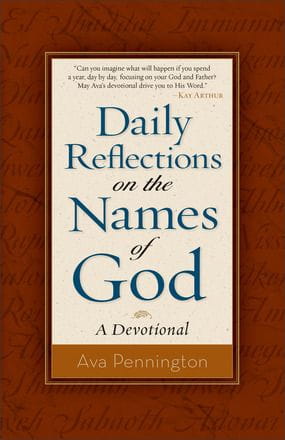8 Keys to Responding to False Teachers

Pastors and ministry leaders have a responsibility to shepherd those in their ministries. But what should we do when the danger comes from other ministry leaders?
These days, it seems as if Christian doctrine is battled out for all to see on the pages of social media. Posts about Christian beliefs or particular teachers are lightning rods, inviting people to comment for or against various celebrity teachers.
Should we be discussing such things on social media, for the world to see? Or should we keep such discussions private, rather than exposing disunity to unbelievers? Should we even be discussing these things at all? And how do we, as ministry leaders, respond to the false teaching of celebrity pastors and teachers?
Some say if we want to be known by our love, we should not criticize or judge any other believer. After all, none of us are perfect. Others quote Bible verses that speak of the need to sort the “wheat from the chaff” or the “chicken from the bones,” taking the good and ignoring the rest. Still others say those who take offense at such teachers are “immature” and that mature Christians should be silent on points of disagreement.
What does the Bible say on this subject? (All references are from the NASB.)
1. To be a pastor or Bible teacher carries great responsibility.
Of course, none of us are perfect, but that doesn’t exempt those who teach God’s word from handling it rightly.
“In all things show yourself to be an example of good deeds, with purity in doctrine, dignified, sound in speech which is beyond reproach, so that the opponent will be put to shame” (Titus 2:7-8).
“Let not many of you become teachers, my brethren, knowing that as such we will incur a stricter judgment. For we all stumble in many ways” (James 3:1-2).
“Be diligent to present yourself approved to God as a workman who does not need to be ashamed, accurately handling the word of truth” (2 Timothy 2:15).
2. Error mixed with a little truth is always easier to believe than error alone.
Rarely does a Christian teacher or pastor teach pure error. Instead, false teachers often mix truth with error.
The enemy used this strategy from the beginning when he asked Eve, “Has God said, ‘You shall not eat from any tree of the garden’?” (Genesis 3:1). God had said not to eat of one tree, not all the trees.
Jesus warned us about the influence of false teaching:
“Then they understood that he did not say to beware of the leaven of bread, but of the teaching of the Pharisees and Sadducees” (Matthew 16:12).
3. With abundant access to Bible teachers through print and digital media, why sacrifice valuable time to listen to those known for mixing truth with error?
I know very few people who say they have too much time on their hands. If anything, most of us are rushing around with too much to do and not enough time to do it (and that’s a subject for another article). So why, with all the Bible teachers and pastoral teaching we have to choose from, would we intentionally give our valuable time to someone who is known for mixing truth with error?
4. We each have a responsibility regarding every Bible teacher, pastor, and scholar.
That responsibility is found in the description of the Bereans in Acts 17:11.
“These were more noble-minded than those in Thessalonica, for they received the word with great eagerness, examining the Scriptures daily to see whether these things were so.”
Does anyone really think these noble believers would have been given as an example for us to follow if they had identified errors in Paul’s teaching and decided to “keep the chicken and toss the bones”?
5. Should we silence our concerns about false teaching regardless of the response of other Christians?
Ever notice how those who want to silence detractors do so in the name of not judging others. Yet these same people pass their own judgment by calling such Christians immature, weak, or critical for sounding the alarm about false teaching.
Even if the one protesting is indeed weak, Paul addressed this when he wrote:
“Now accept the one who is weak in faith, but not for the purpose of passing judgment on his opinions” (Romans 14:1).
And again in 1 Corinthians 8:9:
“Take care that this liberty of yours does not somehow become a stumbling block to the weak.”
If anything, we should deny ourselves any practice that would cause a brother- or sister-in-Christ to stumble, including the support of teachers whose doctrine or theology may be questionable.
6. Does Christian unity require showing love at the expense of speaking the truth?
Of course we should be known for our love. After all, love is indeed the greatest of the gifts and is an attribute of God himself. But just as God does not separate his love from his other attributes, neither should we. Truth without love is harsh, but love without truth is nothing but emotion. We need both.
“And this I pray, that your love may abound still more and more in real knowledge and all discernment, so that you may approve the things that are excellent, in order to be sincere and blameless until the day of Christ” (Philippians 1:9-10).
“As a result, we are no longer to be children, tossed here and there by waves and carried about by every wind of doctrine, by the trickery of men, by craftiness in deceitful scheming; but speaking the truth in love, we are to grow up in all aspects into Him who is the head, even Christ” (Ephesians 4:14-15).
If we see a brother or sister in Christ following wrong teaching, how loving is it to say nothing and let them continue down that road? We all are susceptible to blind spots. I would want to know, wouldn’t you?
7. Do large numbers (the teacher at the heart of a recent debate boasts 38,000 church members) validate teaching?
Large crowds do not guarantee right teaching. Throughout Scripture we see the importance of standing alone for what is right, regardless of what the majority does. We also see that when the nation or rulers taught or followed error, God always kept a remnant—a small group of people who were true to him and his Word.
“Preach the word; be ready in season and out of season; reprove, rebuke, exhort, with great patience and instruction. For the time will come when they will not endure sound doctrine; but wanting to have their ears tickled, they will accumulate for themselves teachers in accordance to their own desires, and will turn away their ears from the truth” (2 Timothy 4:2-4).
8. Has the church lost its relevancy because we’re too busy judging others?
Matthew 7:1-5 is probably the second best known Bible passage after John 3:16.
“Do not judge so that you will not be judged. For in the way you judge, you will be judged; and by your standard of measure, it will be measured to you. Why do you look at the speck that is in your brother’s eye, but do not notice the log that is in your own eye? Or how can you say to your brother, ‘Let me take the speck out of your eye,’ and behold, the log is in your own eye? You hypocrite, first take the log out of your own eye, and then you will see clearly to take the speck out of your brother’s eye.”
But this passage is also one of the most misunderstood, as well. How can it possibly mean that we are never to evaluate the actions of another when the very next verse (verse 6) says:
“Do not give what is holy to dogs, and do not throw your pearls before swine, or they will trample them under their feet, and turn and tear you to pieces.”
A few verses later, Jesus warned, “Beware of the false prophets, who come to you in sheep’s clothing, but inwardly are ravenous wolves. You will know them by their fruits” (Matthew 7:15-16).
In order to determine the “dogs,” “swine,” or wolves, we are required to make a judgment. Jesus acknowledged this when he said, “Do not judge according to appearance, but judge with righteous judgment” (John 7:24).
So the issue is not whether we make judgments, it’s how we do it. We are not to be hypocritical and self-righteous, focusing on someone else’s “speck” while ignoring our own “log.” We are also never to judge anyone’s heart, for only God knows the heart. But we are expected to evaluate what we see and hear—actions and fruit—to determine if they are consistent with God’s Word and worthy of our following.
To shepherd those in our ministries, we need to equip them to stand against the wolves...including wolves who masquerade in sheep’s clothing. Rather than defending questionable teachers, let’s immerse ourselves and our members in solid biblical teaching that doesn’t require excuse, justification, or defense.

Publication date: October 13, 2014
Originally published October 13, 2014.





